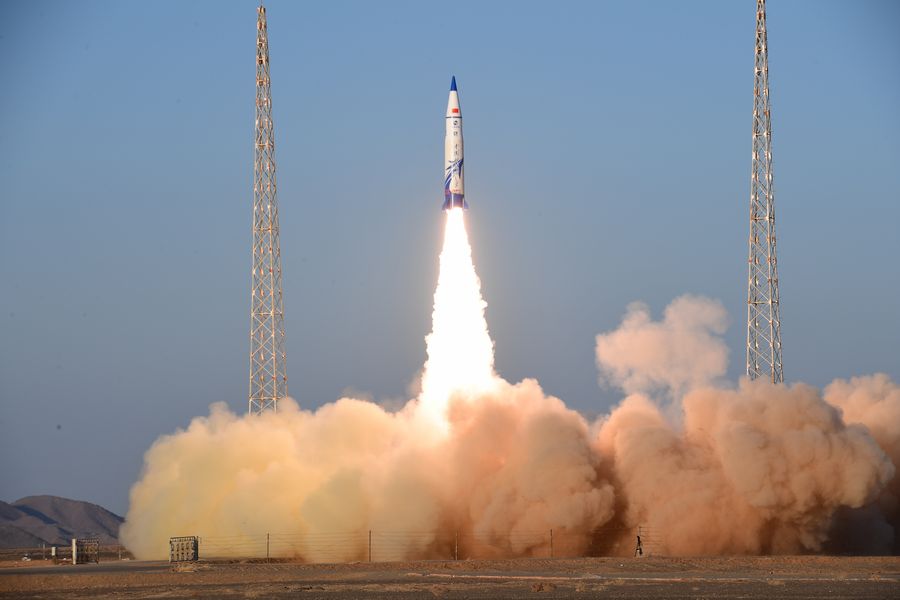China's commercial space industry forges ahead
 0 Comment(s)
0 Comment(s) Print
Print E-mail Xinhua, October 20, 2020
E-mail Xinhua, October 20, 2020

China will promote the development of the commercial space industry during the 14th Five-Year Plan period (2021-2025), aerospace experts at the 6th China (International) Commercial Aerospace Forum held in Wuhan said Monday.
The forum brings together over 200 experts and industry leaders from China and nine other countries to discuss the achievements and future of the world's commercial space industry.
During the 14th Five-Year Plan period (2021-2025), China will continue building space infrastructure, enhance the capability of commercial space systems, and integrate them into major national development strategies, said Fu Zhimin, chief engineer of the China Aerospace Science and Industry Corporation (CASIC).
Development of the commercial space sector will also drive the quality development of strategic emerging sectors such as the digital economy, intelligent manufacturing and new materials, Fu said.
China will continue developing Kuaizhou series rockets, which are low-cost solid-fuel space vehicles with high reliability and a short preparation period. Besides regular commercial launches, China will further shorten the launch preparation period and increase the number of launches.
China will conduct research on reusable launch vehicle technologies to reduce launch cost. The number of annual launch missions of Kuaizhou series rockets will be doubled by 2023 and China would have developed world-class solid propulsion technology by 2025.
Xingyun project, China's first self-developed space-based Internet of Things constellation, is expected to be complete in 2023 and will be ready to provide low-cost and reliable services to global users in 2025.
The rocket industrial park in the Wuhan National Aerospace Industry Base has the capacity to produce 20 solid-fuel launch vehicles per year. The satellite industrial park inside the base will have an annual production capacity of 100 to 200 satellites weighing less than one tonne by the end of 2020.
China will enhance international cooperation and expand the global resource allocation capacity of commercial space technologies and products. The nation aims to provide more commercial space services to global users, especially to countries along the Belt and Road. The forum also offers an important platform for international exchange and cooperation in the space industry, Fu said.
CASIC chairman Yuan Jie said China's commercial space industry will scale new heights under the new economic development pattern of "dual circulation," in which domestic and overseas markets complement and reinforce each other, with the domestic market as the mainstay.






Go to Forum >>0 Comment(s)